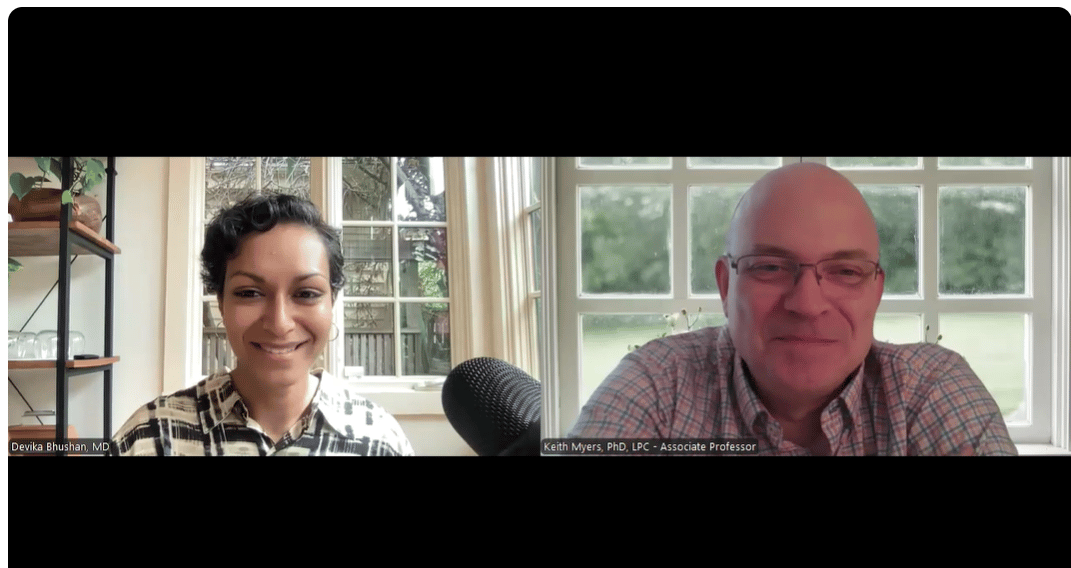- MindWatch
- Posts
- She Spoke. Stigma Broke.
She Spoke. Stigma Broke.
A Surgeon General’s Story about Bipolar.
Who is Dr. Devika Bhushan?

But first…
Before I introduce her and share our interview with you, I cannot tell you how excited I was to speak with her. We’ve had it on the calendar for months. I heard feedback from some of you who want to hear more personal stories. So here we go!
As you will see, she is a dynamic leader in mental health. She’s a stigma-crushing hero in my book. 😊
Meet Dr. Devika Bhushan!

Dr. Devika Bhushan spent years fixing systems. As California’s former Acting Surgeon General and Chief Health Officer, she shaped policy, led research, and built programs that reached millions.
But her most powerful act of leadership wasn’t in a boardroom or a classroom.
It was standing on a stage, telling the world she lives with bipolar disorder.
Not as a footnote or citation in an academic publication. Not as a triumph after the storm. But in the middle of it, while still finding her footing.
That moment, choosing to speak while continuing to heal, is what makes her story matter.
Her Story
Bhushan’s story isn’t one of defeat. It’s one of learning how to adapt.
It’s one of deep recalibration that leads to authentic leadership and a personal story that crushes stigma. And the stigma-crushing business is what she is all about, which makes her the perfect story for MindWatch.
She is a pediatrician, researcher, mother, and partner who rose through Harvard, Johns Hopkins, and into state leadership. On paper, she’s the image of composure. Inside, she was navigating years of mood episodes, trial-and-error medications, and the private exhaustion of pretending to be fine.
When she was first diagnosed with Bipolar Disorder in medical school, she felt two opposing truths: relief that her symptoms had a name, and shame that they did.
That shame didn’t come from nowhere.
The medicine profession rewards perfection and hustle. It praises residents who work through illness, and it quietly punishes those who step back to heal.
“I had to take long breaks for episodes,” she said. “There was a lot of judgment. I had to learn who I was beyond that label.”
Over time, she found others living well with bipolar disorder. Those connections rewrote her story and her own self-stigma. “Those stereotypes I grew up with,” she said, “were just incomplete.”
The Day Everything Changed
On August 26, 2022, Bhushan took the stage at the NAMI California Conference and shared her story publicly for the first time. That same morning, the Los Angeles Times published her op-ed. Later that day, her video message went live across social channels. The Op-Ed. and the video message are outstanding examples of how to be a stigma-crusher.
Three different platforms. One purpose: to crush the stigma and the relative silence.
The response was overwhelmingly kind but also revealing. She wrote about it for NPR. “I would’ve never guessed that about you,” many said.
That sentence, meant as a compliment, is the mirror of stigma itself.
The idea that mental illness and success can’t coexist. That competence and vulnerability can’t share the same person.
Bhushan’s story dismantles that idea in real time.
She is living proof that mental illness doesn’t erase excellence. It adds depth to it.
A Full-Circle Moment

Gif by americanidol on Giphy
This year, at the International Society for Bipolar Disorders annual conference, Dr. Bhushan delivered the opening keynote in Chiba, Japan. That same day, BrainStorm, the documentary she stars in, about life on the bipolar spectrum, had its first premiere to the same audience. Her mother joined her for the screening and keynote, and it was the first time she had ever seen her daughter in that professional world.
They sat side by side, watching the hardest years of their lives unfold on-screen. Dr. Bhushan’s mother had been her most important support person during those years. “It was beautiful to watch the premiere with her,” Bhushan said quietly. “Healing. Full circle.”
That image, a mother and daughter witnessing and reclaiming pain together, is what the end of stigma actually looks like. Not a policy. Not a post. A shared breath of truth.
Why It Matters
Bhushan’s story shows what happens when people at the top of systems tell the truth about mental health through a lived experience. Yes, conducting research helps crush the stigma. Teaching helps.
But telling personal stories is often the chief method to eliminate silence.
It chips away at the myth that strength means silence and gives permission for everyone else to speak.
Stigma isn’t abstract. It’s the quiet bias that shortens lives, delays care, and hides recovery.
Every time someone like Dr. Bhushan speaks, the system itself begins to heal.
What You Can Do
Challenge “I’d never guess.” When someone says it, remind them that illness doesn’t erase identity. It just lives alongside it.
Support visibility. Follow and amplify professionals who speak openly about mental health. Visibility saves careers and lives.
Model the pause. Before assuming someone “has it all together,” ask how they’re really doing.
This has been my favorite newsletter to date, and I’m so grateful to her for sharing her story. ❤ Here are her links to her newsletter and social media pages.
Thank you all for coming along this journey.
Until next Friday morning, come back…be here.
Keith

